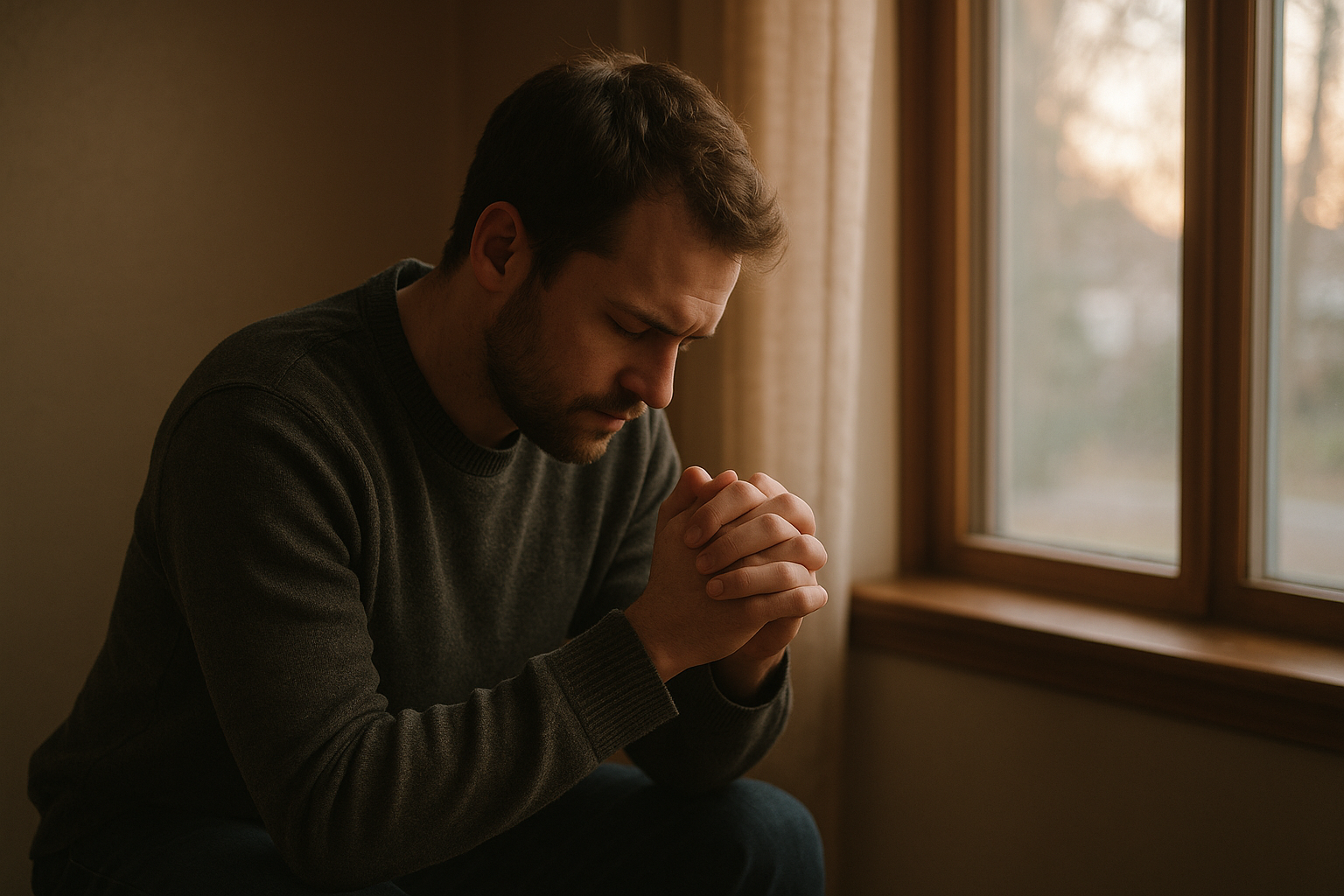⏱️ Estimated Reading Time: 4 min read
Why We Don’t Pray: 5 Reasons Christians Struggle to Pray
By James Williams
If we’re honest, many of us struggle with prayer. But understanding why we don’t pray can help us move toward deeper dependence on God. Imagine being in a marriage where the husband and wife never speak to each other. No communication. No connection. No relationship. It wouldn’t take long to recognize something is deeply broken in that relationship. In the same way, many Christians are in a relationship with God where there’s minimal communication. They rarely pray. They don’t speak with the One who loves them and has redeemed them by His grace.
This ought not be. Paul exhorted the Colossians to “Continue steadfastly in prayer, being watchful in it with thanksgiving” (Colossians 4:2). He wrote to the Thessalonians, “Pray without ceasing” (1 Thessalonians 5:17). We are invited, even commanded, to talk to our God often. So why don’t we pray?
Why We Don’t Pray: Understanding the Problem
1) Our View of God Is Too Small
This one is convicting, but it’s true: our prayer life reveals our theology. Donald Whitney writes, “When our awareness of the greatness of God and the gospel is dim, our prayer lives will be small” (Spiritual Disciplines for the Christian Life, p. 70). If we are not beholding the beauty of Christ, our hearts will not be stirred to pray. If we see God as distant or detached, we won’t speak to Him with joy. But if we recognize God as loving, near, and sovereign, we’ll desire to talk with Him throughout the day.
2) We Think Too Much of Ourselves
Jesus said, “Apart from me you can do nothing” (John 15:5). But often, we act as if we’re sufficient in ourselves. We think we have enough knowledge, energy, and strength to parent well, lead effectively, or face challenges in our own power. Prayerlessness is a subtle form of pride. It says, “I’ve got this.” But we don’t. And God graciously reminds us of our weakness so that we’ll turn back to Him in dependence.
3) We Feel Distant from God
If our feelings of distance are due to sin, spiritual dryness, or grieving the Holy Spirit, we should ask God to reveal it through His Word and respond with repentance and trust in His promises. Hebrews 13:5 reminds us: “I will never leave you nor forsake you.” He hasn’t moved. When we feel far from God, He is still near to the brokenhearted and delights in a humble, contrite heart (Psalm 34:18).
4) We Don’t Plan to Pray
For some, the idea of scheduled prayer may feel forced—you’d prefer prayer to arise naturally. If that works for you and you’re consistent, that’s wonderful. But for many, the absence of a plan leads to the absence of prayer. Having rhythms of prayer—morning and evening, or before meals, or during commutes—can help build a regular habit of communion with God.
5) We’re Spiritually Dry
Sometimes our lack of prayer stems from spiritual dryness. Seasons of discouragement, fatigue, or suffering can make it difficult to pray. But this is when we need prayer most. God invites us to come honestly, to pour out our hearts before Him (Psalm 62:8). Our prayers don’t need to be eloquent—they need to be real. And in those seasons, praying Scripture or reading the Psalms aloud can help reorient our hearts.
What Should We Do?
If prayer is a struggle for you, you’re not alone. But it’s not something we can ignore. Prayer is essential to the Christian life. So where do we start?
- Confess your struggle to the Lord. Ask Him to renew your desire for communion with Him.
- Ask for help from others. Invite a friend or pastor to encourage you in developing a prayer habit.
- Start simple. Pray short prayers throughout the day. Use a journal. Set reminders. Pray Scripture.
The reasons why we don’t pray are often rooted in our view of God and ourselves. But the Lord is gracious and calls us back to Himself through prayer.
James serves as an Associate Pastor at FBC Atlanta, TX. He is married to Jenny and they have three children and are actively involved in foster care. He’s currently working on his PhD in Systematic Theology. His hobbies include: fishing, reading, writing, and running.




